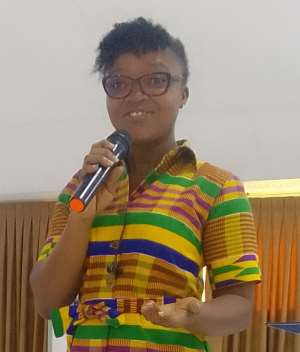
A two-day workshop on facts-checking for staff of the Information Service Department and media personnel in the Bono region has ended in Sunyani.
It was organised by the Ghana Commission for UNESCO in collaboration with the German Commission for UNESCO and Dubawa Ghana, a West African independent verification and fact-checking project.
The training programme was aimed at keeping the participants abreast of some technological tools to verify and authenticate information before putting it out for public consumption.
Zakaria Tanko Musah, a lecturer at the Ghana Institute of Journalism, impressed upon media practitioners to make conscious efforts to abide by the Ghana Journalists Association (GJA) code of ethics in order not to fall foul of the law.
“If you look at the GJA code of ethics, all they are seeking to do is to prevent us from publishing information that is not true and can lead us into trouble. Let’s check, let’s cross-check and when we do all those things, we’ll be on the right track.”
Self-regulation
“We need to also bear in mind that there is the law of defamation. If you write something about me that is not true and it has the tendency to make me look bad in the eyes of right-thinking members of the society, you are in trouble. I’ll sue you.”
He said journalism, unfortunately, cannot be regulated like other professional areas such as law, accountancy and medicine, among others because “anywhere in the world that you attempt to regulate who can practice journalism, it means you are regulating free speech. Nobody would allow you to regulate free speech but we can do self-regulation and exhibit high professional standards.”
Information disorder
The Country Lead for Dubawa Ghana, Caroline Anipa, took the participants through “Understanding Information Disorder” and explained to them the differences between misinformation, disinformation and malformation.
She said technology and digitalisation have had an impact on inter-connectivity, information dissemination to a wider audience at very little cost and have further provided the platform for divergent and more voices to be heard, among others.
She mentioned satire or parody, misleading content, imposter content, fabricated content, false connection, false context and manipulated content as the seven common forms of information disorder.
The GJA Regional Chairman, Larry Paa Kwesi Moses, encouraged the participants to attach maximum seriousness to the training and apply the knowledge acquired in their work.
He said the workshop was crucial for journalists because of the 2024 polls, saying "Election 2024 will be a critical one and it is incumbent on us as journalists to play our role to ensure that this country remains peaceful.”
Roselena Ahiable, the Programme Officer of Dubawa Ghana and CJID, took the participants through the skills and steps involved in fact-checking and verification as well as social media and online tips for fact-checking.





 Saglemi Housing Project will not be left to rot – Kojo Oppong Nkrumah
Saglemi Housing Project will not be left to rot – Kojo Oppong Nkrumah
 Transport fares hike: GPRTU issue two-day ultimatum
Transport fares hike: GPRTU issue two-day ultimatum
 ARC endorses Alan as presidential candidate – Buaben Asamoa
ARC endorses Alan as presidential candidate – Buaben Asamoa
 Akufo-Addo appoints Kwasi Agyei as new Controller and Accountant-General
Akufo-Addo appoints Kwasi Agyei as new Controller and Accountant-General
 PNC dismiss reports of mass resignations
PNC dismiss reports of mass resignations
 PAC advocates for revenue collectors to be engaged on commission basis, not full...
PAC advocates for revenue collectors to be engaged on commission basis, not full...
 Genser Energy commissions 110km of natural gas pipeline at Anwomaso
Genser Energy commissions 110km of natural gas pipeline at Anwomaso
 Naa Torshie calls for tolerance, peace ahead of 2024 election
Naa Torshie calls for tolerance, peace ahead of 2024 election
 Asantehene commends Matthew Opoku Prempeh for conceiving GENSER Kumasi Pipeline ...
Asantehene commends Matthew Opoku Prempeh for conceiving GENSER Kumasi Pipeline ...
 Let’s do away with ‘slash and burn politics’ in Ghana — Dr Adutwum
Let’s do away with ‘slash and burn politics’ in Ghana — Dr Adutwum
